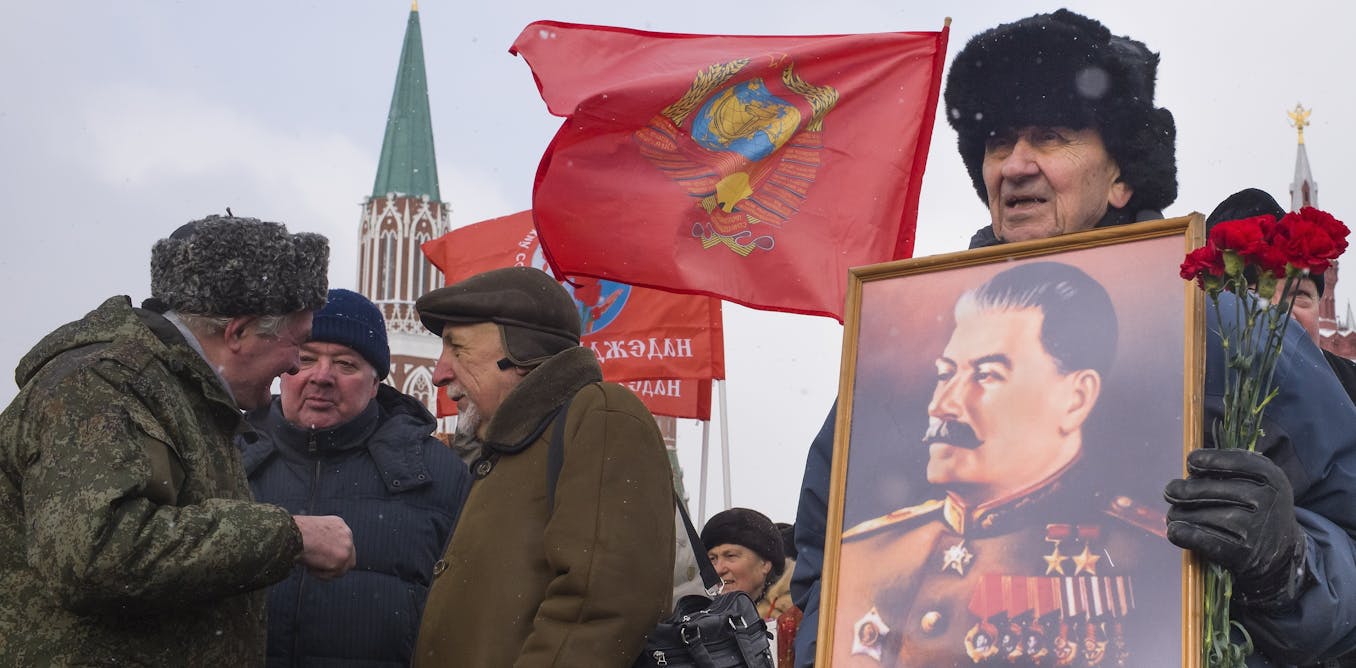Litwin
Platinum Member
@janedunlap6879
1 year ago
My grandma grew up in Czechoslovakia. When Moscow Stalin's empire invaded her town, they killed all the men in her family or took them to gulags. She escaped to the US, because she had married my grandpa who was a US citizen.
Koba- Stalin was and is one of the most underestimated monsters of the 20th century...
Madhouse News, Moscow empire excluded books about Stalin's repressions as well as books containing criticism of the USSR from the school curriculum
1 year ago
My grandma grew up in Czechoslovakia. When Moscow Stalin's empire invaded her town, they killed all the men in her family or took them to gulags. She escaped to the US, because she had married my grandpa who was a US citizen.
Koba- Stalin was and is one of the most underestimated monsters of the 20th century...
Madhouse News, Moscow empire excluded books about Stalin's repressions as well as books containing criticism of the USSR from the school curriculum



